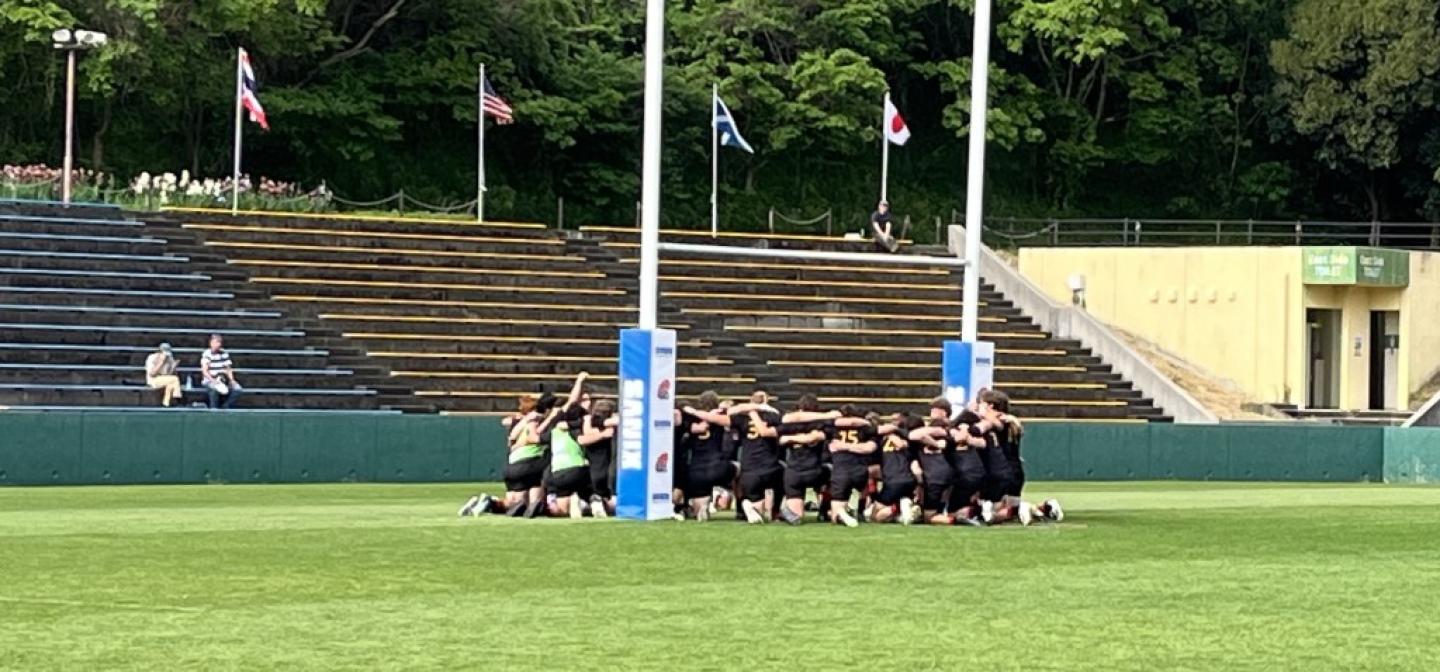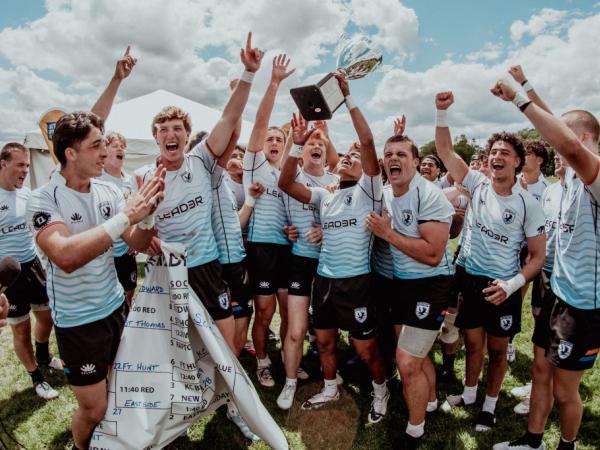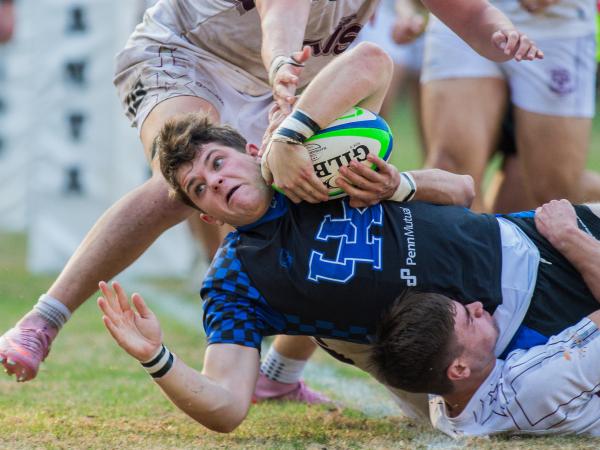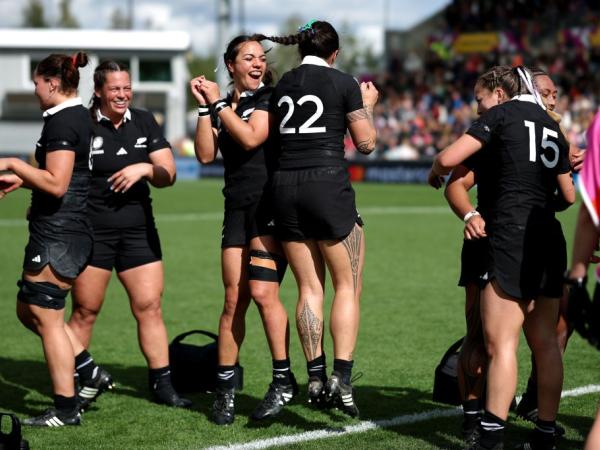At GRR we talk a lot about playing outside your region and touring—the education you get is hugely valuable, and playing tougher competition teaches your players that there is always another level.
Sometimes, though, you find out that there are several levels. And that’s good for the entire country.
Jesuit of Sacramento, last year’s Single-School National Championships runner-up, encountered all of this and more in their trip to Japan recently, where they competed in the Sanix World Rugby Youth Tournament. This annual tournament of top high school teams from around the world is considered the pinnacle of schoolboy rugby.
Now, it’s fair to say that Jesuit this year is not as strong as the team they fielded last year. They graduated some talented players and have a relatively young side this year that logged a 1-4 record in the very challenging NorCal Premier division. In addition, in order to play in the Sanix tournament they had to adhere to an age cutoff that required them to leave some more experienced players home.
(USA domestic HS rugby allowed players who are in high school to compete. Some of those players have turned 19 before the New Year. The Sanix tournament requires players to have been born no earlier than January 1, 2006.)
Tougher than Tough
So all of that said, what we saw was a very good American high school team compete in a tournament that featured eight top HS teams from Japan plus seven other non-Japanese teams from England, Fiji, New Zealand, South Korea, Namibia, Taiwan, and Australia.
This was the first time a US team had participated, and it was as difficult as the Marauders expected.
“The tournament was amazing,” said Jesuit head Coach Andrew Acosta. “We took a very young team to this tournament and it is really serious. The Japanese teams were on a vacation week and they came to win this thing. The Japanese teams are all technically superb and train really hard. They’re up at 6AM to train and their intensity is pretty amazing.”
Two Japanese teams made the final, beating Southland Boys HS of New Zealand and St. Augustine College of Australia in the semis. This was a first for the tournament. (By the way, St. Augustine had toured California and played Jesuit many years ago.)
Chasing Shadows
For Jesuit, the opening minutes of their opening game against Higashi Fukuoka showed them what they were up against. Jesuit started really well, working through some phases and some nice offloads to get into the Fukuoka half. They got a penalty, and set up a lineout to attack from. But they lost the lineout, and less than 20 seconds later the Japanese team was under the posts. Slick handling and a commitment to fast rugby was an eye-opener.
The result was a 54-3 loss. They then took on Southland Boys HS and lost 73-0, and then Kokugakuin University Tochigi HS … and lost 80-0. This was incredibly strong opponent after incredibly strong opponent day after day after day.
“This shows me that American rugby has got a lot of work to do,” said Acosta. Kokugakuin, by the way, ended up 10th. “Do we not hold players to a standard enough? That’s probably true. There are kids who say they’ve played rugby in America in a long time and they can’t catch and can’t pass accurately. All of the players we played against can do that. We cheer the big hit or a big charge, but what does that matter if we lose the ball?”
Acosta said other teams were astonished to find out that several of his players had only picked up the game as freshmen. Most of the players on other teams had been playing for at least 10 years. And it’s not just open play or offensive play. Teams are accurate and clean in their tackles, and especially around the breakdown.
“In Japan they don’t poach, they counterruck. As a result you have to be deadly accurate at the breakdown,” Acosta said. “If you’re not and you’re not paying attention the ball’s out and you’re chasing shadows. We watched the final and it was like watching two professional teams.”
































































